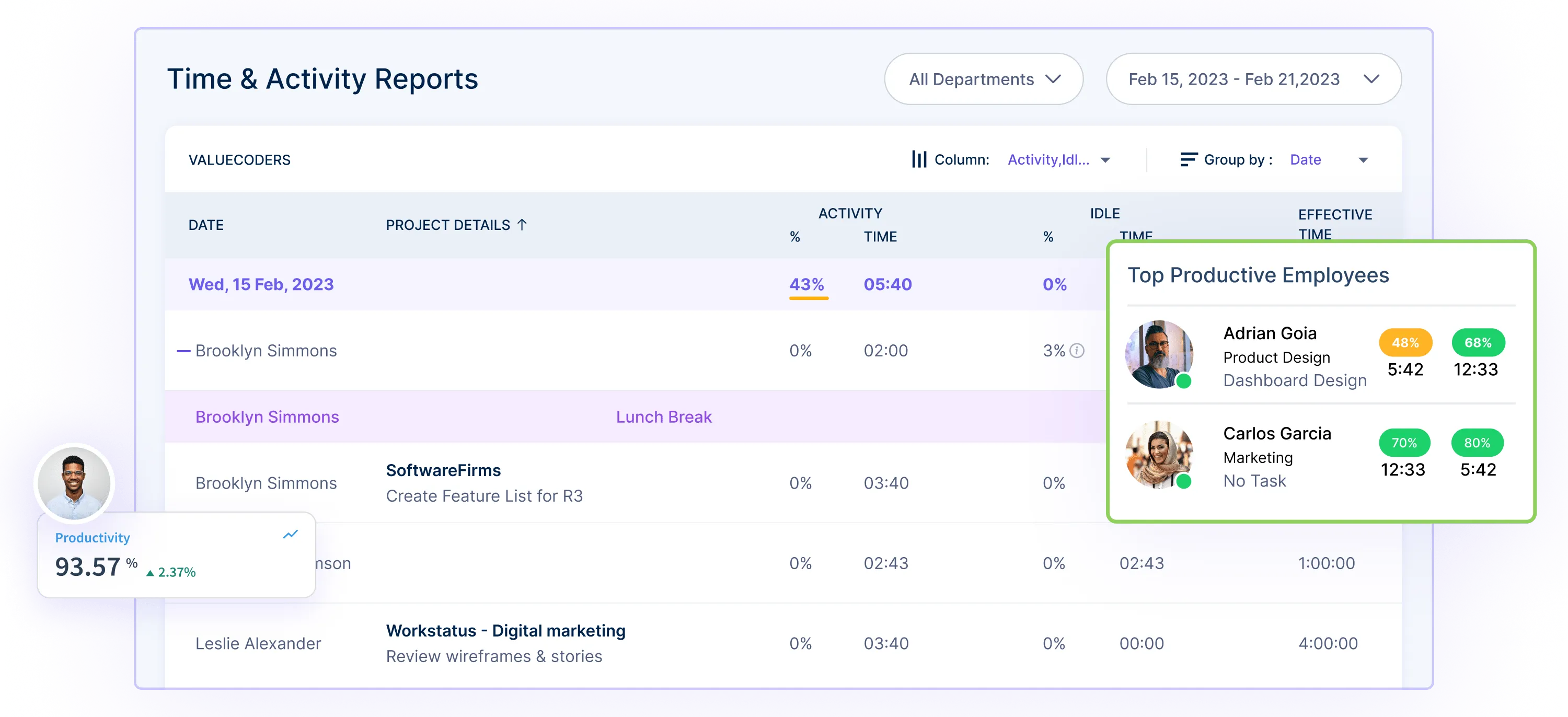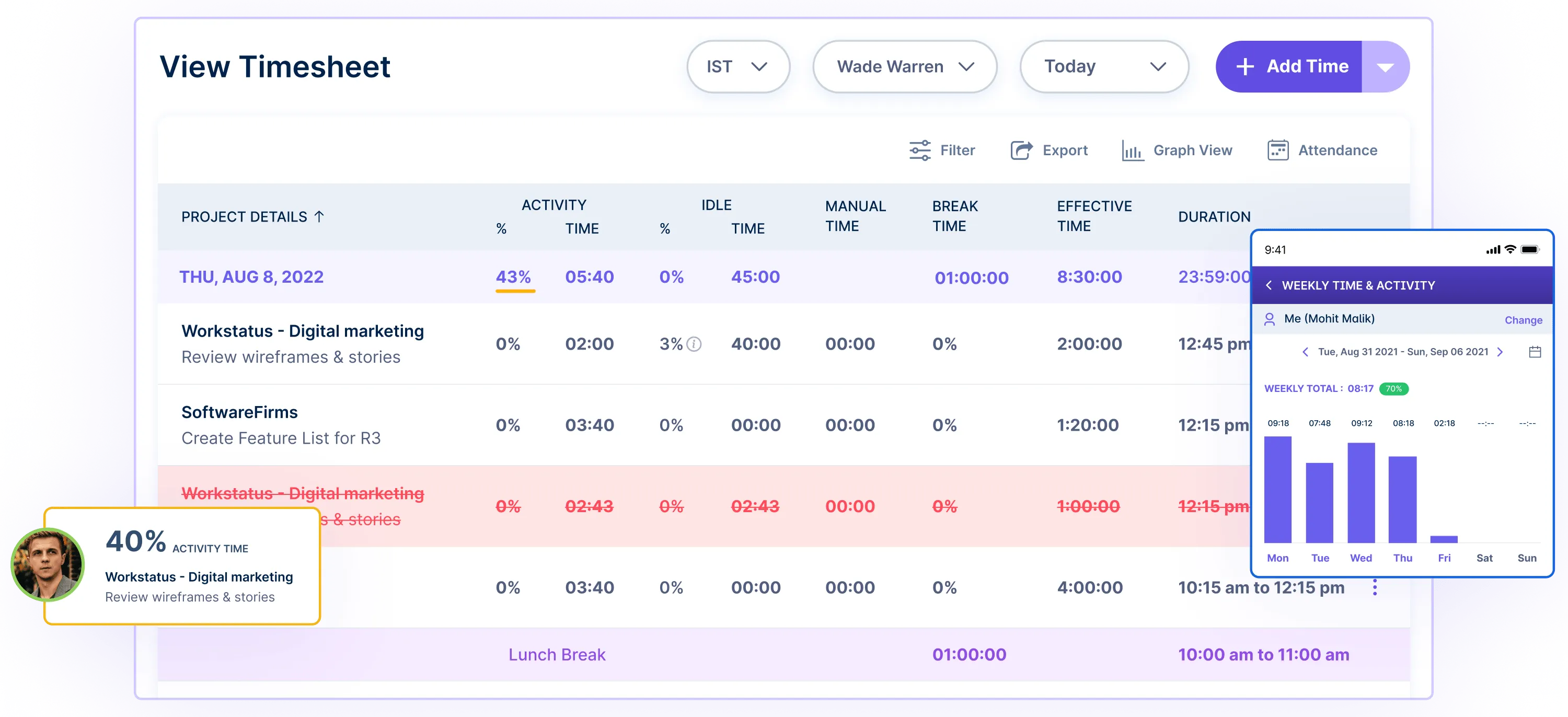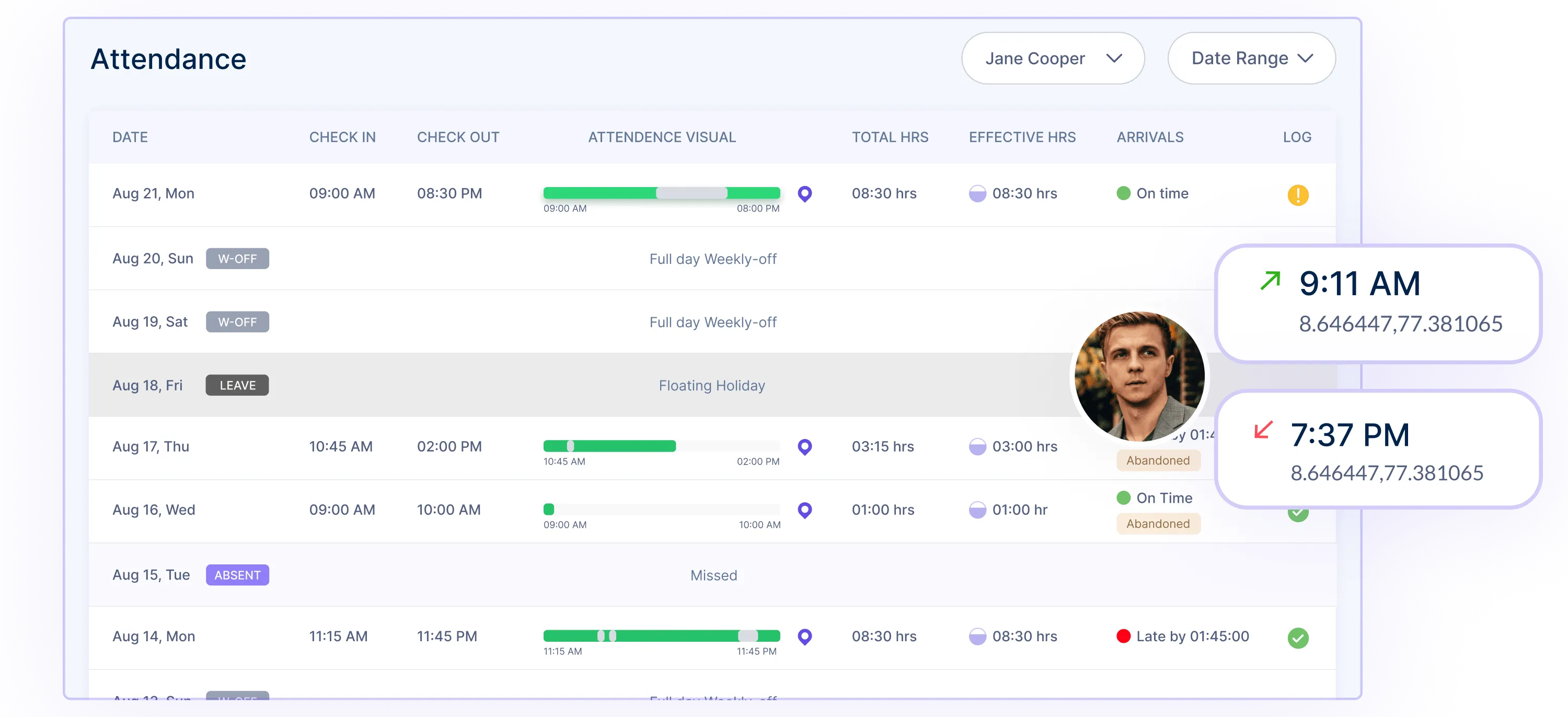Table of Contents
Introduction
Nowadays, we are constantly interrupted by tools, notifications, emails, social media, and many other things, making it difficult to focus on what’s truly important or know if you prioritize the right work at the right time.
Your plans for the day might get disrupted by the following:
- High-priority tasks
- Urgent messages
- Endless notifications
Did You Know?
Refocusing on a task after being interrupted takes an average of 23 minutes and 15 seconds.
Adding to the challenge, 80% of employees work while handling their email or other communication apps. As a result, employees are less efficient and more likely to miss messages, actions, and deadlines.
This highlights the need for better time management strategies.
Golden rules for Time management can help you regain control of your time and bring more mindfulness into your daily routine.
Instead of letting your to-do list dictate how you spend your time, you can use time management tools and strategies to set your daily priorities and focus on the most relevant work.
It’s important to note that there is no single right way to manage your time, as different approaches may work better for different individuals and situations.
This blog post will cover tips, strategies, and tools to help you regain control of your tasks and time. You can explore and find the approach that works best for you.
Let’s dive in.
Understanding The Benefits Of Time Management
Here are some major benefits of managing time wisely:
1. Increased Productivity
When you plan out your day carefully, you can get much more done in the 24 hours.
Planning your day and schedule helps you focus on priorities instead of wasting time.
Grouping similar tasks helps you knock things out more efficiently rather than jumping back and forth.
2. Better Stress Management
Raise your hand if you’ve ever felt overwhelmed by everything on your plate! Effective time management helps reduce that anxiety.
Having a plan for your day gives you a calmer sense of control.
You don’t have to stress about what to tackle next – you’ve already decided on your top priorities.
3. Improved Work-Life Balance
Without time management, work can bleed into your personal life in an unhealthy way.
But when you dedicate specific hours for work, hobbies, family time, etc, you create healthy boundaries.
You’re much more present and purposeful in each area of your life.
4. Enhanced Decision Making
When you aren’t just reacting to whatever comes up, you can be more intentional about your choices and priorities.
You have the mental bandwidth to think critically about what deserves your valuable time and energy.
No more mindlessly saying yes to things!
5. Greater Sense of Accomplishment
There’s no better feeling than cruising through your to-do list and checking things off.
Time management lets you be productive and have tangible wins.
You get to feel that rewarding sense of making progress.
6 Golden Rules For Time Management To Maximize Productivity
An easy way to better manage your time is to use a proven time management strategy daily. These strategies help you set time limits for tasks, focus on one thing at a time, and thoughtfully plan your schedule.
Here are seven golden rules for time management that can help you boost productivity:
1. Pomodoro method
The Pomodoro technique is about working in short, focused bursts followed by regular breaks to recharge. You work for 25 minutes, then take a 5-minute break. After 4 work intervals, you take a longer 20-30 minute break.
The frequent breaks prevent burnout and allow your brain to refocus before diving back in. Studies show we’re more productive when we work in these short intervals with breaks in between.
It takes some adjusting, but working in hyper-focused 25-minute “Pomodoros” trains your brain to power through tasks more efficiently.
The breaks keep you refreshed instead of zoning out during marathon work sessions.
Give it a try next time you need to complete an important task – your focus and motivation will improve dramatically with this simple technique.
Work smarter, not longer!
2. Timeboxing
Do you ever feel like you spend too much time on certain tasks or constantly underestimate how long things will take? Timeboxing is a strategy that can help with that.
The basic idea is that you set a specific time “box” or limit for each task or project you need to work on.
So instead of vaguely working on something until it’s done, you give yourself a firm deadline – like 90 minutes to draft that blog post outline.
It’s especially useful if you lose track of time or let tasks drag on forever. The timebox forces you to stay focused and avoid endless rabbit holes.
When the timer goes off, you re-evaluate and either wrap it up or schedule another timebox later.
Another perk is that it helps you break down big, overwhelming tasks into bite-sized chunks. Like instead of “write entire blog post” for 5 hours straight, you might do the following:
- 1 hour timebox for outline
- 2 hour timebox for draft
- 1 hour timebox for polishing
Seeing that daunting task as a series of manageable sprints makes it feel way less intimidating and stressful.
The key is being realistic about how long you’ll need.
Experts recommend keeping timeboxes to 3 hours max for ultimate focus. You can always schedule another one later if needed.
It takes some practice, but timeboxing is a simple way to regain control over your tasks and time.
Instead of tasks controlling you, you intentionally control when and how long you work on things. Awesome for productivity!
3. Getting Things Done (GTD)
David Allen invented The Getting Thing Done technique back in the early 2000s. His main idea? Write down every single thing you need to do to clear your mind.
Allen says the first step is to get it all out of your head and onto paper (or a digital list). That way, your brain doesn’t waste energy remembering and stressing over your massive to-do list. Instead, you can focus that mental energy on actually checking things off.
To use GTD, you first want to capture everything on one master list or note-taking app. Then, categorize and prioritize what needs to be done immediately, what can wait, and what can be delegated or deleted entirely.
The goal is to get organized and clear on the specific next actions for each item.
Having a completely captured “mind-like” system frees you up to focus on execution rather than trying to juggle everything in your head. It’s all written down in the right buckets to refer back to as needed.
The hardest part is routinely doing those “mind sweeps” to empty your mental inboxes into the system.
But once you build that habit, the GTD method helps you achieve total focus and control over your tasks.
4. Pareto principle
You know that feeling when you look at your massive to-do list and just feel overwhelmed? Like where do you even start? The Pareto Principle is a time management strategy that helps with that.
The basic idea is that 80% of your results come from 20% of your efforts. So, a small portion of your tasks make up most of the impact.
Instead of treating every task equally important and spreading yourself too thin, the Pareto Principle says to first concentrate on high-impact, high-value activities.
It’s all about prioritizing the critical 20% of tasks that will produce 80% of your desired outcomes. Once you knock out those priority tasks, you can move on to the remaining 80% that account for the last 20% of results.
It just makes the time you spend way more efficient and effective. You’re homing in on the vital few tasks rather than getting bogged down in the trivial many.
5. Time blocking
This is like the Timeboxing extended version. With timeboxing, you set time limits for each specific task. Time blocking takes it a step further.
Instead of just putting time boundaries around individual to-dos, you’re scheduling bigger chunks of time for certain categories of work.
It’s about dedicating focused blocks to themes like creative projects, admin tasks, meetings, etc.
For example, block off 9 am to 11 am every Monday to answer emails and process paperwork. Then, 1 pm to 3 pm is your creative writing block. This way, similar tasks are batched together instead of jumping back and forth all day.
The big advantage is it helps you avoid constant context switching and really get into a good flow state. You can sink in without distractions and progress better when you have two hours ringfenced just for coding.
To set it up, first, identify your main work categories or priorities for the week. Then, schedule blocks of 1-4 hours for each theme. You’re intentionally designing your ideal workflow.
It takes practice, but once you have a time blocked calendar dialed in, it’s amazing for productivity. You know exactly when to work on what, and those task themes keep you mentally focused, too.
The key is sticking to your schedule as much as possible and only batching similar tasks together.
That’s what reduces back-and-forth and cultivates the deep work magic!
6. Eat the frog
The “Eat the Frog” technique is about tackling your biggest, most important task first thing in the morning before anything else.
It’s human nature to procrastinate on the tough, high-priority items. But by “eating that frog” – the biggest t task on your list – the very first thing when you’re fresh, you ensure your vital work gets done.
Once you power through that dreaded frog, the rest of your day is a breeze.
You build massive momentum by ripping off the toughest band-aid bright and early.
The key is identifying your “frog” each day – the critical task you’d normally want to avoid. Having a prioritized to-do list that connects tasks to goals can help.
Then, simply eat that frog first for a profoundly productive day.
Switch To WorkStatus To Achieve More In Less Time
WorkStatus is a tool that helps you track your time on different tasks and projects. This lets you see where your time is going daily and weekly.
Knowing where your time goes makes it easier to manage your schedule better.
Here is how Workstatus can help with time management:
1. Employee Performance
Workstatus lets managers track the performance of their teams by analyzing key metrics such as productive hours, unproductive hours, completed time, and project status.

It also enables managers to identify top-performing employees and areas where employees may require additional support or training.
2. Timeline of Tasks & Projects
Define a timeline of all tasks and projects assigned to teams and their deadlines.

It helps project managers to manage their projects effectively, track the progress of each task, and ensure that projects are completed on time.
3. Employee Timesheets
With Workstatus, you can easily track the hours worked by each employee through online timesheets.

It helps to calculate employee pay, monitor overtime, and accurately bill your clients.
4. Attendance Management
Workstatus offers an attendance management feature to help you track absences and leaves.
It helps to ensure that employees report to work on time and also helps to identify any patterns of absenteeism or tardiness.

It tracks user activities in real-time and offers a range of reporting and analytics to help leaders stay on top of progress.
FAQs
Ques: How does Workstatus improve time management?
Ans: Workstatus gives you data on where time is being spent. With that visibility, you can identify inefficiencies and optimize schedules. The activity tracking also encourages focused, productive work.
Ques What kind of time tracking does Workstatus provide?
Ans: Workstatus lets you track time on tasks, projects, and jobs with one-click timers. The timers run automatically for accurate tracking. No manual entries are needed.
Ques: How do the reports and analytics help manage time better?
Ans: The visual reports show where the most time is going. You can spot tasks/projects taking too long. This data-driven insight allows for reprioritizing workloads.












